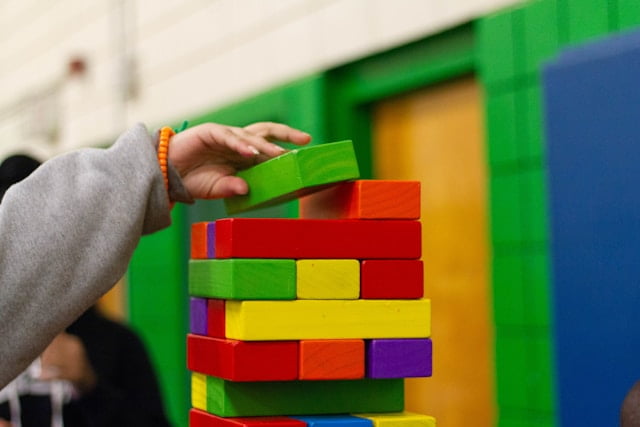John Vervaeke, a cognitive scientist, talks about there being four different types of knowledge: propositional, procedural, perspectival and participatory. Summary by The World of Work Project
The 4 Ps of Knowledge
John Vervaeke, (Cognitive Science, University of Toronto) talks about there being four different types of knoweledge: propositional, procedural, perspectival and participatory.
Propositional
Propositional knowledge is the knowledge of ‘facts’ or other ‘truths’ expressed in clear statements. It’s all about propositions. It’s the sort of logical and theoretical side of knowledge.
This type of knowledge answers the “what” questions about the world. For example, knowing that “the Earth orbits the Sun” is a piece of propositional knowledge.
These types of knowledge can be easily written down and communicated, making them the most familiar and widely studied form of knowledge in traditional educational systems.
Procedural
Procedural knowledge in knowledge of how to do specific activities and sequences of activities.
This type of knowledge explores the “how” of things. It is the knowledge of processes and skills, such as knowing how to ride a bicycle or play a musical instrument. Reading a book on riding a bike will give you the propositional knowledge about it, but won’t actually help you do it.
This type of knowledge is often implicit and gained through practice and repeated actions rather than through verbal instruction. It’s what is often referred to as “know-how,” as opposed to the “know-what” of propositional knowledge.
Perspectival
Perspectival knowledge is about knowing what something is like from a certain angle or perspective or context. It’s about being able to see it in a certain way, potentially from someone else’s view point, through a certain lens.
This type of knowledge is very subjective and is first-person in point of view. It’s the knowledge of “what it is like” to be in a certain situation.
For instance, knowing how it feels to be in a crowded place or understanding one’s emotional response during a stressful event are both forms of perspectival knowledge.
Perspectival knowledge is about having a particular standpoint or perspective and is intimately tied to our individual perceptions, experience of the world and cognitive state. These are not things that we can fully learn through propositions and processes.
Participatory
Participatory knowledge is the knowledge of what it’s like to play a certain role in your environment or in relationships.
Vervaeke considers this to be the most profound of the four types of knowledge. It involves being in a deep, transformative relationship with the world, participating fully in something that is wider than you.
It is not just knowing about, but knowing through active engagement and transformation within specific contexts or environments. It shapes and is shaped by the interaction between the person and the world, influencing one’s identity and sense of belonging.
This kind of knowledge is experiential and co-creative, often seen in the dynamics of relationships, culture, and community participation.
Learning More
Coaching is clearly relevant for this, as is work on personal values. And we think Covey’s “See, Do, Get” is worth exploring.
Otto Scharmer’s Levels of Listening is potentially of interest too, specifically the last level about generative listening, which we feel connects Participatory knowing.
John Vervaeke also talks a lot about this stuff in some of his free resources. He has a lot of them, and we came across this concept in his series “Awakening from the Meaning Crisis”, which you can explore below. This series is also available on Spotify.
The World of Work Project View
We think this is a really interesting thing to think about, and connect with the idea of there being multiple ways of knowing things.
These separations are alluded to in different contexts in other domains too, for example in coaching people speak about the “head”, “heart” and “gut”, and what is shaping our thoughts and feelings. These could be thought of as ways of accessing and reflecting on different forms of knowing.
While these distinctions can be a bit abstruse, they can also be pretty practical. For example, if we think about some theories of learning, we can clearly see that gaining propositional knowledge will only help us so much in developing procedural knowledge (where we need to actually practice). Similarly, knowing and being able to perform the process in one context only gives us the perspectival knowledge of one context. Practicing a presentation at home alone is very different to delivering under the lights of a theatre to thousands, and so on.
We like to explore these types of knowing in our coaching work with clients, and in our development programme work with groups. We fully believe that experiential learning approaches help participants develop across all four of these types of knowledge, creating fuller, more engaging and enriching and more effective learning experiences.
How We Help Organizations
We provide leadership development programmes and consulting services to clients around the world to help them become high performing organizations that are great places to work. We receive great feedback, build meaningful and lasting relationships and provide reduced cost services where price is a barrier.
Learning more about who we are and what we do it easy: To hear from us, please join our mailing list. To ask about how we can help you or your organization, please contact us. To explore topics we care about, listen to our podcast. To attend a free seminar, please check out our eventbrite page.
We’re also considering creating a community for people interested in improving the world of work. If you’d like to be part of it, please contact us.
Sources and Feedback
The podcast above is the source for this.
We’re a small organization who know we make mistakes and want to improve them. Please contact us with any feedback you have on this post. We’ll usually reply within 72 hours.






